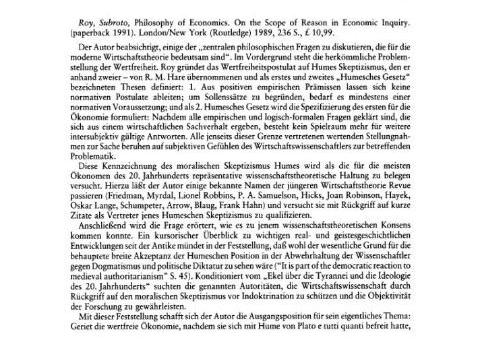Philosophy of Economics
On the Scope of Reason in Economic Inquiry
Subroto Roy
© 1989, 1991, 2007 Subroto Roy

First published by Routledge of London & New York , 1989, in the International Library of Philosophy
Library of Congress HB72.R69 1989
British Library 330’.01-dc19
Economics – philosophical perspectives
ISBN 0-415-03592-9
Reprinted in paperback, 1991
Library of Congress HB72.R69.1991
British Library 330’.01-dc20
ISBN0-415-06028-1
Apropos *Philosophy of Economics*










Leave a comment